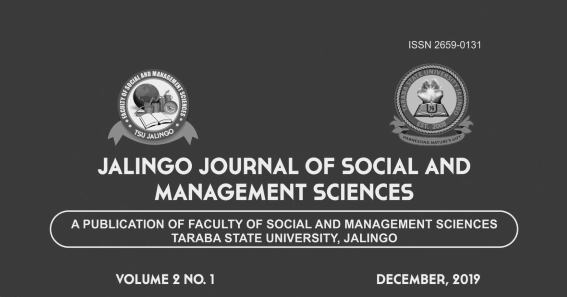Personal Income Tax Generation and Utilization in Taraba State Board of Internal Revenue, Nigeria
Keywords:
Personal income tax, tax generation, tax identification, tax utilization, Taraba StateAbstract
The objective of this study was to evaluate how personal income tax generation affects tax utilization in Taraba State, Nigeria. Specifically, the study assessed the relationship between tax identification, assessment and collection, and tax utilization in Taraba State, Nigeria using a sample of 234 respondents selected through simple random sampling techniques. Primary data was collected using questionnaire while reliability and validity of the instruments were evaluated using Cronbach’s alpha and content validity index. Frequencies and descriptive statistics were used to analyze the population. Pearson linear correlation coefficient was employed to examine relationship between personal income tax generation and tax utilization. Findings of the study showed a positive relationship between tax identification and tax utilization (r = 0.616). It also showed a positive relationship between tax assessment and tax utilization (r = 0.673), and a positive relationship between tax collection and tax utilization (r = 0.650). The study concluded that the various components of income tax generation, that is, tax identification, tax assessment and tax utilization have positive and significant influence on tax utilization in Taraba State, Nigeria. The study recommends, among others, that the tax authorities should properly review and evaluate the assessment and collection procedures so as to encourage compliance among the tax payers; and that qualified personnel with the right attitude should be recruited, trained and retrained to man the internal revenue board. More so, deliberate efforts should be made to educate tax payers on the need to pay taxes while the government should embark on aggressive infrastructural development to justify the taxes received.

Downloads
Published
Issue
Section
License
Copyright (c) 2023 JALINGO JOURNAL OF SOCIAL AND MANAGEMENT SCIENCES

This work is licensed under a Creative Commons Attribution-NonCommercial 4.0 International License.
